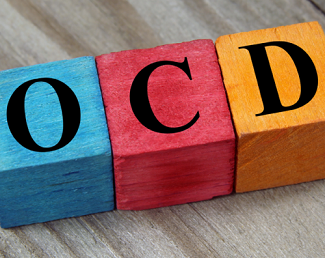OCD: Physical Sensations and Urges
OCD: Physical Sensations and Urges

We conceptualize OCD as a biologically based mental health disorder whereby a person experiences intrusive unwelcome thoughts (obsessions) and engages in rituals (compulsions) to get rid of the anxiety (or any uncomfortable feeling) associated with these thoughts.
Often overlooked in conceptualizing OCD are the physical sensations that folks may focus on, rather than a primary disturbing thought.
These physical sensations are uncomfortable and fear inducing, but they don’t resemble the intrusive thoughts that most persons focus on when they have OCD. Generally, these sensations give false signals that the person perceives as being important and because they are physical sensations, the person generally assigns tremendous importance and validity to these sensations, because they “feel” them. There is usually an accompanying obsession that is disturbing, but the patient may be unaware of it.
For example, I have treated patients whose primary OCD symptom is experiencing the frequent urge to urinate. The patient detects a sensation that he/she needs to urinate and the compulsion is going to the bathroom and urinating. One of my patients, a graduate student in his late twenties, was referred to me after visiting medical doctors (including urologists) to determine the cause of his urge to repeatedly empty his bladder throughout the day and also during the night. This patient woke up many times, felt the urge to urinate, and then would get out of bed to use the bathroom. He became so sleep deprived that he was having difficulty functioning productively during the day and was in danger of dropping out of graduate school. His medical doctors could not find any physical cause for these symptoms.
After my evaluation I suggested that he was suffering from OCD. However, this patient had a difficult time believing that. He would say, “But I feel this urge. It’s physical!” I explained that sometimes OCD gives false physical urges, as well as false thoughts.
I utilized Exposure and Response Prevention to treat his OCD, as I would in treating any other OCD content. In this case, the patient needed to experience the uncomfortable physical sensations of feeling the need to urinate and not run to the bathroom to relieve himself. At night, when he woke up, he would need to stay in bed with that uncomfortable sensation. In addition to feeling physical discomfort, he needed to experience the anxiety generated by his thought (the obsession) that he might indeed wet the bed. Sometimes he would delay the compulsion to get up for as long as possible, but would eventually get up. To help him return to bed, he constructed a sign and posted this on his bathroom door that read, “Go back to bed!”
We established a schedule of times he was permitted to urinate and modified this schedule as he was able to tolerate greater discomfort. We did this for urges he felt during the day, as well as nighttime. By doing this, his use of the bathroom was predetermined and was not dictated by OCD, and therefore urination was no longer a compulsion.
Once he realized he could have false physical urges that didn’t need to be acted on and also accepted the uncertainty that he might wet himself, he woke up less frequently and rather quickly was able to sleep throughout the night. Other physical sensations can manifest as symptoms that an OCD patient might present with and be very disturbed by. These include “sexual sensations” that a person suffering from harm/pedophilia OCD may experience and then use as misguided “evidence” that they are in fact dangerous deviants and not suffering from OCD.
Or OCD can revolve around becoming hyper aware of natural bodily processes, such as breathing, swallowing or walking. The patient’s hyperawareness propels them to check how they are breathing, walking or swallowing and then they compulsively try to adjust themselves to make those behaviors more perfect. But by doing so, the natural course of these automatic functions is inhibited and they can find themselves creating a situation in which their compulsions are actually creating difficulty with breathing, walking and swallowing.
In all of these cases, I explain that just as the brain can generate “noise,” the body can generate noise too. You might be aware of it, but you don’t need to do anything about it. It doesn’t have to “mean” anything and it is not more important because you “feel” it. It’s just OCD’s tricky way of getting you to look for evidence that will propel you to believe that something bad will happen and to convince you to do everything you can to avoid that bad thing from happening.
If you can accept uncomfortable physical sensations, as well as intrusive unwelcome thoughts, without doing anything to mitigate them, you are on your way to conquering OCD!












